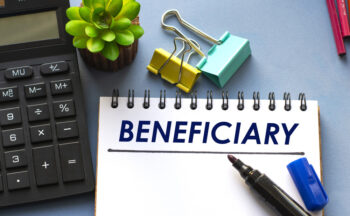Learn About the Variety of Tasks, Considerations, and Restrictions When It Comes to Transferring Assets to Beneficiaries in New Jersey
 The Centers for Disease Control and Prevention (CDC) indicates the average life expectancy for men is 73.5 years. For women, that age is 79.3 years. This sounds like a very long life, which is why many people put off estate planning much longer than they should, often not even creating a Last Will and Testament. However, once you begin thinking about your own eventual death, you might become very concerned with ensuring your loved ones are taken care of after you are gone. There are many ways to transfer assets to beneficiaries, but which ones are right for your individual circumstances? Should you write a will and call it done or create a trust? If you create a trust, which kind? With so many options, it is essential to consider them all carefully before making any decisions.
The Centers for Disease Control and Prevention (CDC) indicates the average life expectancy for men is 73.5 years. For women, that age is 79.3 years. This sounds like a very long life, which is why many people put off estate planning much longer than they should, often not even creating a Last Will and Testament. However, once you begin thinking about your own eventual death, you might become very concerned with ensuring your loved ones are taken care of after you are gone. There are many ways to transfer assets to beneficiaries, but which ones are right for your individual circumstances? Should you write a will and call it done or create a trust? If you create a trust, which kind? With so many options, it is essential to consider them all carefully before making any decisions.
Recognizing Your Possessions and Their Value in NJ Estate Planning
An individual’s assets are made up of everything they own. Clothes, jewelry, motor vehicles, furniture, their residence, any other real estate they own, artwork, books, home decor, tools, lawn care equipment, and kitchen dishes are just a few examples of assets. When creating an estate plan or writing a will, most people do not list every single item they own. What they will often do is leave specific items to specific people, such as Cousin Sally gets Grandma Mary’s diamond necklace. Any items that are not specifically left to an heir, such as daily clothing, home decor, or bookshelves full of books, become part of the residuary of the will and are distributed accordingly.
While some assets, such as real estate, motor vehicles, or diamond jewelry, may have some significant monetary value, not all assets do. Clothing, home decor, and books may not have the value that the deceased believed. Some of these items may have sentimental value, but this does not mean they have monetary value.
Different Approaches for Transferring Assets to Beneficiaries in New Jersey
The most common methods of transferring assets to beneficiaries in New Jersey are through a will or a trust. Most people are familiar with these methods and often opt for them. But they are not the only methods, and for some assets, a will or trust may not be an option.
Will
The most commonly known method of transferring assets to beneficiaries, a will is a document that indicates which assets are left to which people. A will can also be used to name guardians for minor children. In a will, the person writing the will (testator) names individuals as beneficiaries or heirs and names which assets those individuals get. Any assets not left to a specific individual are part of the residuary of the estate. Those assets may be divided between all the heirs, given to a particular heir, sold, or otherwise handled according to the terms of the will.
A will must go through probate, which makes the will a public record. This process also requires notifying creditors of the decedent that they have died so the creditor can submit their claim for final payment. In some cases, paying creditors may require selling some or even all of the estate’s assets.
Trust
A trust is the second most commonly known method of transferring assets to beneficiaries in New Jersey. Assets placed in a trust can bypass probate and offer faster access to assets after the trust grantor dies. Trusts can be created so that the assets are distributed to the beneficiaries upon the grantor’s death, and the trust is then closed. They can also be created to remain open until certain conditions are met, such as the beneficiary reaching a certain age, or completing specific requirements (such as graduating college or obtaining a particular degree). Some trusts may even remain open indefinitely, such as those that are created for an individual with special needs.
Designations to Beneficiaries
Some assets do not pass through a will and instead are passed directly to a beneficiary through a beneficiary designation. These assets are ones such as retirement accounts and benefits, life insurance policies, annuities, stock options, health savings accounts, employee stock purchase plans, and deferred compensation plans. Bank accounts and other accounts that have a pay-on-death beneficiary designation also fall under this type of asset.
With these assets, the owner designates a beneficiary (or multiple beneficiaries). When the owner dies, the asset passes directly to the beneficiary without going through probate. Some people name a trust as the beneficiary of these types of assets.
Joint Tenancy and Tenancy in the Entirety
Joint tenancy is a legal term for co-ownership. It occurs anytime an individual owns an asset with someone else. Many married couples have joint tenancy of their homes and motor vehicles. When a couple is married, it is called tenancy in the entirety. All other co-ownerships of this nature are joint tenancy.
Joint tenancy makes the transfer of an asset seamless. With joint tenancy, upon the death of one owner, the other owner or owners continue to have ownership of the asset. This type of ownership overrides any will bequests. This means that if a husband and wife have joint tenancy of their house, and the husband dies first and, in his will, leaves the house to his adult daughter, the wife will continue to own the home, and the daughter will not have any ownership of the home until or unless the wife grants her any ownership.
Transfer-on-Death Registrations or Titles
Another option for transferring certain assets is a transfer-on-death registration or title. New Jersey does not allow this for real estate, but it can be used for motor vehicles, stocks, bonds, and some other assets. These act similarly to a pay-on-death account in that the owner retains full ownership of the asset until their death, at which time the asset immediately transfers to the individual named.
Inter Vivos Gifts
Another standard method of transferring assets to beneficiaries in New Jersey is inter vivos gifts, or gifting the assets to the beneficiaries while the estate owner is still alive. This is an excellent way to plan for Medicaid, and can also help to reduce higher inheritance tax rates if the individual has a large estate.
Strategic Decision-Making for Transferring Assets
There are many things people must consider when choosing which methods of asset transfer to use. Some of the considerations include reducing inheritance taxes, quick access to the inheritance for the beneficiary, providing for loved ones, planning for incapacity, and keeping any businesses they own running smoothly during the transition.
Some of those considerations could conflict with each other. Individuals may have to evaluate their priorities, decide which considerations are most important, and choose their asset transfer methods based on that. An estate planning attorney may be able to help determine how to transfer assets when the individual is not sure which methods meet their needs most.
Navigating New Jersey’s Inheritance Tax
New Jersey has an inheritance tax, and the state ensures that it receives this tax by placing a tax lien on all of the estate’s assets as of the date of the estate owner’s death. This lien remains in place until it is paid off, a waiver is granted by the state, or 15 years have passed since the estate owner died. The executor of your estate will need to get the required tax waivers from the surrogate court before they can begin distributing assets.
Certain assets, such as those owned in joint tenancy, stocks, bonds, bank deposits, mortgages, or corporate securities, are not subject to this inheritance tax and will immediately pass to the other owner. Assets that are passed through a will or trust are subject to this inheritance tax. This tax must be paid whether the heir is a New Jersey resident or not. The state must give a tax waiver for many assets before the estate’s executor can release the asset to the beneficiary. Waivers are not required for automobiles, accrued wages or mortgages, personal effects, or household goods.
If your estate is large or complex and includes many kinds of assets, you may want to speak with an estate planning attorney at Chamlin, Uliano & Walsh to learn more about how to simplify it so your beneficiaries can receive their inheritance with as little confusion as possible while also reducing the inheritance tax as much as possible.
Tax Implications for Beneficiaries in New Jersey
Beneficiaries are divided into classes in New Jersey, and the class a beneficiary falls in is based on the closeness of their relationship to the decedent. Class A are those people with the closest relationships to the decedent, including spouses, biological and adopted children, stepchildren, grandchildren, and parents. Class A beneficiaries do not pay any inheritance tax.
Class C beneficiaries, which include siblings, half-siblings, and surviving spouses or civil union partners of the decedent’s children, pay taxes on a scale based on the value of the inheritance. They do not pay tax on the first $25,000 but then pay between 11% and 16% based on the additional amount of their inheritance. Class D beneficiaries, which are any other beneficiaries that do not fit in Class A, C, or E, do not pay tax on the first $500 of their inheritance but pay 15% tax on up to $700,000 and 16% if the inheritance is more than $700,000.
On the other hand, New Jersey does not have a gift tax, though if the gifts are large enough, federal gift tax may still be due. If an individual is concerned about ensuring that their beneficiaries are not responsible for paying inheritance taxes, they may want to discuss gifting their assets to beneficiaries while they are still alive with their estate planning attorney.
The Complexity of Personal Property in NJ Estate Administration

However, these items often have significant sentimental value to one or more family members. For example, the decedent may have owned a piece of costume jewelry that their child or grandchild would want because it reminds them of the decedent. This sentimental value is often the source of conflict within estates. One or more beneficiaries may wish to have these items for their sentimental value, while other beneficiaries or the executor believe they should be sold. This personal property can also be a source of contention when two or more beneficiaries want the same item, and it is not left to a specific beneficiary.
Sometimes, beneficiaries overestimate how much value personal property may have. They will claim that the executor is selling these types of assets for far less than they are worth or even accuse the executor of stealing these assets. This is another source of contention that can often be avoided if the executor keeps detailed records of any asset sales and gets appraisals of assets before selling them.
Can Executors or Administrators Make Sale Transactions?
Technically, yes. However, there are conditions for this ability. The sale must be expressly authorized by the decedent, either through their will or a contract they signed before their death, or notice must be given to all interested parties, and then the sale must be approved by the court. If neither of those conditions are met, any person interested in the estate, excluding a beneficiary who was provided with fair disclosure and consented, may void any transaction by the executor, the executor’s spouse, their agent, attorney, or any corporation in which they have a substantial interest, or any transaction that is affected by a significant conflict of interest for the executor.
Estate Planning’s Role in Successful Asset Transfer in New Jersey
An estate plan includes several components, including a will and possibly a trust. Those two components are critical to a smooth transfer of assets to beneficiaries in New Jersey. Things can be very messy if an individual dies without a will or trust.
Dying Intestate
When an individual dies without an estate plan or a will at the minimum, they are said to have died intestate. When this happens, their estate still needs to be distributed. The problem is that nobody knows what the individual would have wanted without a will. Therefore, the state of New Jersey created a method of intestate succession to determine who inherits an individual’s estate when they die without a will.
This intestate succession allows the court to distribute the decedent’s estate in a way that is as fair as possible. Assets that are jointly owned become wholly owned by the remaining owners. Assets with designated beneficiaries are transferred to the named beneficiaries. All other assets are then distributed to the next of kin. If the individual was married and had children with their spouse, the spouse inherits everything. If they were married but had children from another relationship, the spouse receives the first 25% of the estate, then the remaining estate is divided with 50% going to the spouse and the other 50% being divided among the children. If the individual had a spouse but no children, but their parents are also still alive, the spouse receives the first 25% of the estate, then the remainder of the estate is divided with 75% going to the spouse and 25% to the parents.
If the individual was not married, was unmarried with children, or had other familial situations, the court determines the next of kin based on blood relationships. This means that grandparents, siblings, cousins, aunts, uncles, nieces, and nephews may all be people who could inherit an intestate estate. But many people do not want these relatives to be the ones who inherit their assets, especially if they were not close or had no relationship at all besides sharing genetics.
While the court seeks out next of kin and determines the relationships between those individuals and the decedent, no assets are distributed. Depending on the decedent’s relationship with next of kin, this process may take a long time, particularly if the court must locate distant relations.
Dying With an Estate Plan
When an individual dies with an estate plan, there is no question about who will inherit their assets. The individual has detailed exactly how they want their assets distributed and to whom. While the probate process can take time, it is usually done in less than a year. New Jersey laws also allow the executor to transfer a portion of the estate to beneficiaries without the required tax waivers to help beneficiaries gain access to their inheritance more quickly.
Legal Constraints in New Jersey Asset Transfer

Another restriction is that the executor must distribute assets exactly as instructed in the will. This means that if the decedent left her diamond earrings to her granddaughter Sarah in the will, and granddaughter Mary claims that the decedent told her she could have the earrings, the executor must give them to Sarah.
Contact Chamlin, Uliano & Walsh to Discuss Your Estate Matter in Howell and Across Southern New Jersey
The transfer of assets to beneficiaries can be complex based on the type of asset, how it is transferred, and when it is transferred. Some assets may be better as gifts before your death, rather than an inheritance afterward. An experienced estate planning attorney at Chamlin, Uliano & Walsh can go over your estate with you and help you determine the methods of asset transfer that benefit you, your beneficiaries, and your estate the most.
We can help you minimize any estate tax paid on your estate and assist with other tasks, such as creating and funding trusts, ensuring that all the appropriate paperwork is properly completed and filed for whichever methods of asset transfer you opt to use, and assisting the executor with getting the required tax waivers to distribute assets after your death. For a consultation to go over your questions and learn more about the transfer of assets to beneficiaries from your estate in Hazlet, Howell, Neptune, Red Bank, Holmdel, Freehold, Rumson, Tinton Falls, Belmar, and elsewhere in Monmouth County, Ocean County, and surrounding areas in New Jersey, contact our team today. Contact our law firm now at (732) 440-3950 or fill out our form to arrange your consultation.
